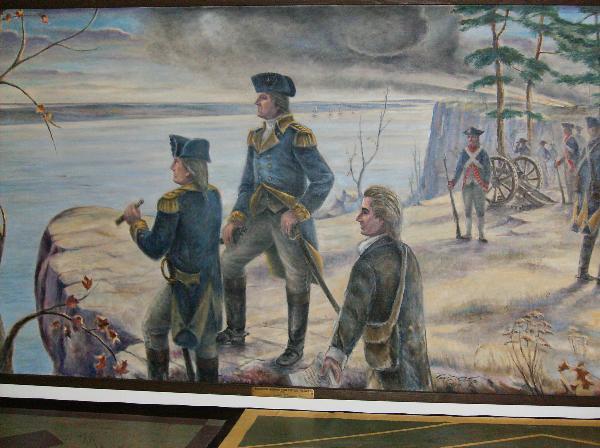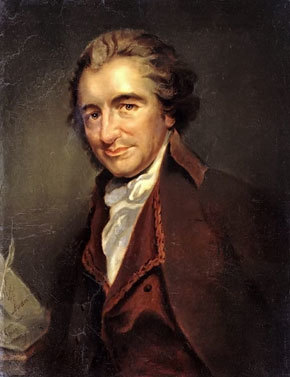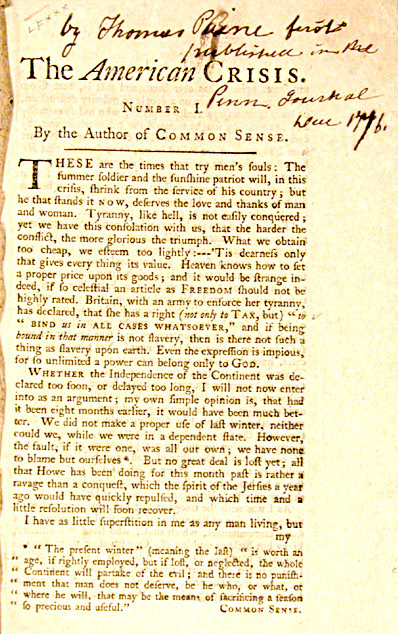Fort Lee was rendered defenseless after Continental Army troops holding Fort Washington were defeated and captured on November 16, 1776. The Royal Navy controlled the Hudson River. General William Howe ordered Charles Cornwallis to "clear the rebel troops from New Jersey without a major engagement, and to do it quickly before the weather changed." The force included Hessian units commanded by Colonel Carl von Donop. The invasion of New Jersey began the night of November 19–20,1776 when 5,000 British troops ferried across the Hudson on barges and began landing near New Dock Landing (present-day Alpine). George Washington and Nathanael Greene quickly ordered the evacuation of the fort on the morning of November 20, 1776.
 ”Fort Washington"
”Fort Washington"
The soldiers then began a hasty retreat west, crossing the Hackensack River at New Bridge Landing and the Passaic River at Acquackanonk Bridge.The losses at Fort Lee and Washington placed a heavy toll on the Patriots. When they evacuated their forts, they were forced to leave behind critical supplies and munitions. Many troops had been killed or taken prisoner, and the morale of the remaining troops was low. Few believed that they could win the war and gain independence.
It was during Washington's retreat that Thomas Paine composed his pamphlet, "The American Crisis", which began with the recognized phrase, "These are the times that try men's souls." Thomas Paine wrote these remarkable words in Fort Lee, New Jersey. They were published December 19 with a new pamphlet titled "The American Crisis", these words boosted the morale of the Patriot forces. His previous pamphlet, Common Sense, published a year earlier, was known to have had a powerful influence on the drafters of the Declaration of Independence.
During the Revolutionary War, getting soldiers to stay in the Continental Army was one of the biggest problems facing the American commander in chief, General George Washington.
 ” Watching the retreat"
” Watching the retreat"
Many American soldiers were non-professional militiamen who volunteered for a limited number of months, usually during the spring or summer. After a short stint, they were legally allowed to go back their farms to harvest their fall crops — and typically did.
There were regular soldiers in the Continental Army. But many deserted once they experienced the horrors of combat or the miserable conditions in winter camps. Others left after becoming disgusted by the lack of reliable pay and supplies.
In 1776, Thomas Paine, an aspiring writer who had emigrated to America from England two years earlier, became an aide-de-camp to American General Nathanael Greene.
That winter, Paine decided to write something to try to renew the patriotic spirit of American soldiers and discourage them from deserting or going home when their enlistment period was up.
It ended up being the first in his series of “American Crisis” pamphlets.
The opening sentence became a famous quotation; the second embedded two related metaphors into our language:
“These are the times that try men’s souls. The summer soldier and the sunshine patriot will, in this crisis, shrink from the service of their country; but he that stands it now, deserves the love and thanks of man and woman.”
 ”Thomas Paine"
”Thomas Paine"
Paine brought together the thirteen diverse colonies and encouraged them to stay motivated through the harsh conditions of the winter of 1776. Washington’s troops were ready to quit until ordered by Washington to be read aloud Paine’s Crisis paper and heard the first sentence, “These are the times that try men’s souls.”
The pamphlet, was also read aloud to the Continental Army on December 23, 1776, three days before the famous Washington's crossing and the Battle of Trenton.
This reading bolstered morale and resistance among patriots, as well as shame neutrals and loyalists to support the cause: Tyranny, like hell, is not easily conquered; yet we have this consolation with us, that "the harder the conflict, the more glorious the triumph".
 ”The American Crisis"
”The American Crisis"
This cache is one of "The American Revolution Geo~Trail" caches throughout New Jersey. These special geocaches are hidden at many historic locations which have a connection to important New Jersey's American Revolutionary War history. To participate in the optional Geo-Trail, after you find the geocache, locate the secret code and record it into your passport which you will print from this website. Information at njpatriots.org
 ”njpatriots.org"
”njpatriots.org"
The Northern New Jersey Cachers, NNJC is about promoting a quality caching experience in Northern New Jersey. For information on The Northern New Jersey Cachers group you can visit: www.nnjc.org.
 nnjc.org & metrogathering.org, & njpatriots.org
nnjc.org & metrogathering.org, & njpatriots.org